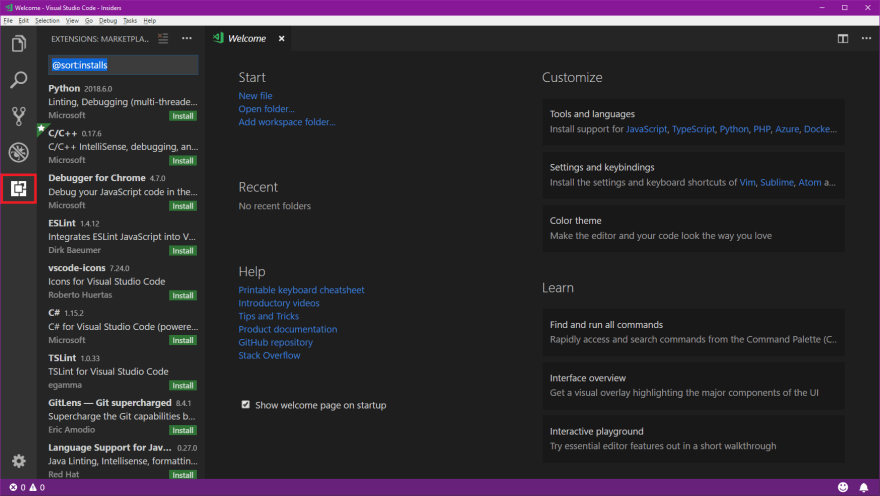
Please see the document How to Contribute, which covers the following: If you are interested in fixing issues and contributing directly to the code base, Review the documentation and make pull requests for anything from typos to additional and new content.Submit bugs and feature requests, and help us verify as they are checked in.

There are many ways in which you can participate in this project, for example: To get the latest releases every day, install the Insiders build. You can download it for Windows, macOS, and Linux on Visual Studio Code's website. Visual Studio Code is updated monthly with new features and bug fixes. It provides comprehensive code editing, navigation, and understanding support along with lightweight debugging, a rich extensibility model, and lightweight integration with existing tools. Visual Studio Code combines the simplicity of a code editor with what developers need for their core edit-build-debug cycle.

Visual Studio Code is a distribution of the Code - OSS repository with Microsoft-specific customizations released under a traditional Microsoft product license. This source code is available to everyone under the standard MIT license. Not only do we work on code and issues here, we also publish our roadmap, monthly iteration plans, and our endgame plans. This repository (" Code - OSS") is where we (Microsoft) develop the Visual Studio Code product together with the community. This is the initial c_cpp_properties.Visual Studio Code - Open Source ("Code - OSS") The second section with just “ path” is used by IntelliSense to suggest things for us. This is not recursive, unlike GCC we must explicitly identify each folder containing headers that are referenced, either directly or indirectly. The first, “includePath,” tells VSCode where to look for headers so it can examine our code.

These include default includePaths that are appropriate for desktop programmes but unsuitable for ARM. This will have setups for Mac, Linux, and Win32 by default. In our project, VSCode will generate and open a file called “c cpp properties.json” in the “.vscode” folder. Then update the “includePath” setting by clicking that. The lightbulb to the left of the error will be seen if the pointer is on it.

Visual Studio Code and the C/C++ language plugin need to be able to locate all of the header files referenced in our programme in order to understand it. These capabilities, however, will not work well or at all if the plugin is not properly configured. This can help us write more quickly and with fewer errors.


 0 kommentar(er)
0 kommentar(er)
